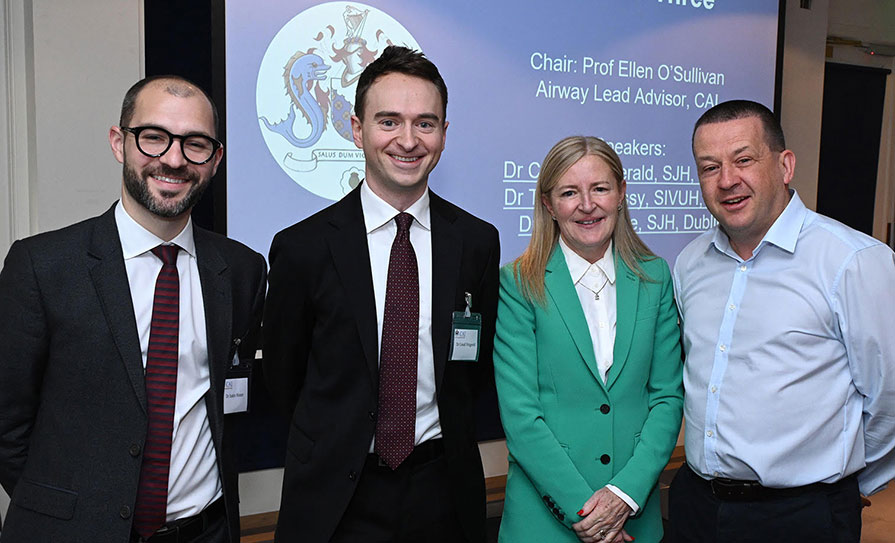<h3>A mutilation of fundamental human rights</h3>
Sometimes the role of a journalist is to raise an issue that kicks-up the dust a little bit, with the ultimate aim that some good might come of it. So it was with the feature by your faithful scribe Catherine Reilly in the 8 February issue of the Medical Independent (MI), which shone a light on the aberration that is female genital mutilation (FGM).
At time of writing, the story has continued to ‘grow legs’ of centipede-like proportions in print, radio and television media. And there are tangible repercussions. The Irish Times reported recently that Dr Ali Selim (PhD) of the Islamic Cultural Centre in Clonskeagh, Dublin, and one of the people interviewed in MI’s feature, has seen some backlash in his role as a lecturer in Trinity College Dublin after “a large number” of his Arabic-language students complained about what they see as his stance on “female circumcision”. These students “will have the option to take lessons and exams with a new teacher”, said Trinity. He must feel like he has kicked one hell of a hornet’s nest.
The picture of him in The Irish Times shows someone with a ‘hunted’ look. He has since backtracked and told The Pat Kenny Show on TV3 that he “condemns FGM “in the strongest terms” and has put the “confusion” and “misunderstanding” down to phraseology and that his command of English “sometimes lets me down”.
But it should also be noted that the Trinity-related complaints came from his Arabic-language students, and there is an important point to take from this. In recent decades, Ireland has changed vastly in terms of the cultural make-up of its population and this necessitates the need to foster cultural integration and tolerance of each other’s beliefs.
However, clearly, there is a line not to be crossed and the issue of FGM is good example of this. While FGM is not supported in Islam — as stated by Imam Shaykh Umar Al Qadri in MI — for some people, it can be very easy to take a blunderbuss approach and paint a whole population with the same brush.
It’s also worth reminding ourselves that Islam is a faith and not a race, but I digress.
The fact remains that while cultural integration and tolerance are important to our development as a modern nation, there are limits. FGM is morally, medically and ethically repugnant and should be treated with zero tolerance.
As well as the responsibility on the part of medical professionals to improve education on FGM, the onus is also on the courts to hand-down the harshest sentences possible to people who perform this atrocity on helpless children.
<h3>Going with the flow?</h3>
Continuing the theme of ‘how did we ever survive without…’ from a recent issue of MI, to mobile devices and pulled pork I would like to add ‘bottled water’. Many of us of a certain vintage remember a time when going to a pub to buy water was the height of insanity and water would only be purchased when travelling to a country with unsafe tapwater, but as the saying goes, ‘we are where we are’.
Of course, the battled water industry is now a behemoth, even in countries where tap water is considered to be safe.
We are used to the concept of the tobacco and alcohol industries using psychological sleight of hand to manipulate us, but the bottled water industry too? The answer is ‘yes’, according to a recent report.
Canada was the focus for the statistics — according to Euromonitor, Canadians bought 2.4 billion litres of bottled water in 2013 and the prediction is that this year, that figure is set to rise to around three billion litres, so there’s some serious money involved here.
The study by researchers at the University of Waterloo in Ontario, Canada, suggests that those marketing bottled water exploit subconscious fears, most importantly the fear of dying. The researchers employed the ‘Terror Management
Theory’ (TMT) to suggest that fear of death — both conscious and unconscious — is something that people go to great efforts to repress and influences our consumption behaviours.
They drew on data from the content of bottled water advertising campaigns via websites, imagery and advertising techniques, among other instruments. The fact that anti-bottled water campaigns exist was news to this writer, but exist they do.
Over to author Ms Stephanie Cote of Waterloo to explain: “Bottled water advertisements play on our greatest fears in two important ways. Our mortality fears make us want to avoid risks and, for many people, bottled water seems safer somehow, purer or controlled.
“There is also a deeper subconscious force at work here, one that caters to our desire for immortality.”
And as usual, industry is winning out, says Waterloo researcher Sarah Wolfe: “If public and non-governmental organisations were interested in promoting the benefits of municipal
drinking water systems, they’re going to need to use new tactics that are emotionally stirring and speak to more than just the financial, ethical and environmental benefits of tap water.”
Closer to home, Ireland is about to have the recycling export door shut by China, which takes around 90-to-95 per cent of Irish plastics for recycling. At time of writing, China was set to ban these imports and the Government was in a bit of a panic as to what to do with all that recycled plastic.
Perhaps it’s time to go back to the tap, for all kinds of reasons.










Leave a Reply
You must be logged in to post a comment.